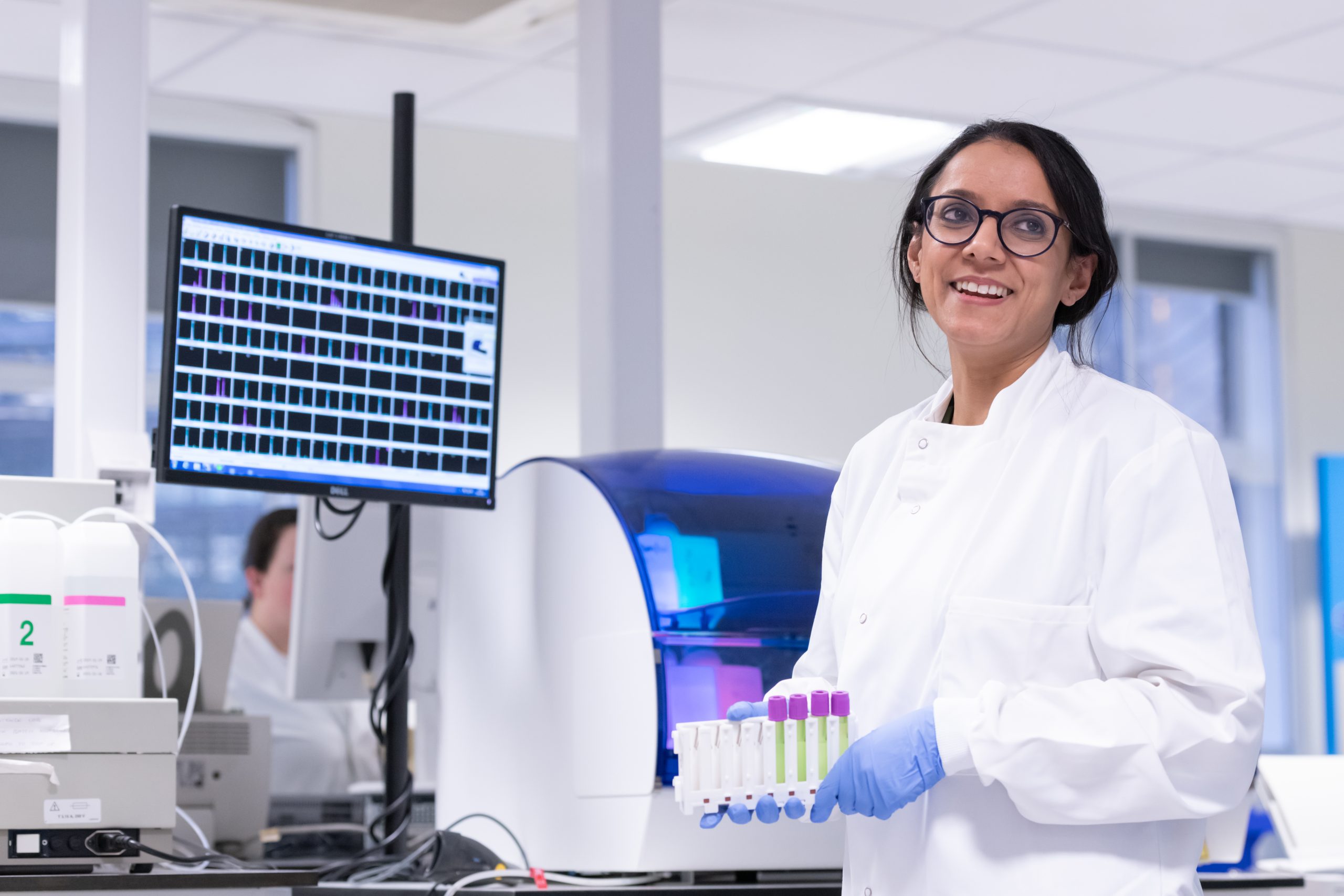
While traditionally seen as a disease of older adults, type 2 diabetes is increasingly affecting younger people. This “early onset” form carries a higher risk of complications and earlier death. To mark Diabetes Awareness Week, Dr Shivani Misra from the Department of Metabolism, Digestion and Reproduction sheds light on her research which aims to tackle early onset type 2 diabetes in individuals from minority ethnic backgrounds.
When I was at medical school, I learned that type 2 diabetes was a condition that affected middle-aged or older adults often living with obesity. However, these days the demographics of who is affected by type 2 diabetes have drastically changed. More and more younger adults and children are affected with type 2 diabetes and we call this early onset type 2 diabetes, typically defined as a diagnosis before the age of 40 years.
What we do know from large analyses across the world, is that when you’re diagnosed with type 2 diabetes at earlier age, your diabetes can progress through to complications very rapidly and also reduce life expectancy. Of even greater concern is the impact on women living with early onset of type 2 diabetes, in whom pregnancy can be complicated because of type 2 diabetes and there’s a higher risk of foetal death, sadly.
The rise of early onset type 2 diabetes
If we look at data from England over the last few years the age group with the fastest rise in prevalence of type 2 diabetes is in those aged under 40 years. What’s driving this rise? Well, it’s most likely to be associated with rising levels of overweight and obesity, but that association between obesity and type 2 diabetes does not hold true for everyone and certain individuals can often develop type 2 diabetes without being very overweight. We know that complex diseases that develop at younger age often do so in people who are genetically predisposed nevertheless it’s the environmental factors that are likely to predominate.
I first became interested in studying early onset type 2 diabetes during my PhD. I set up a project to look for rare genetic forms of diabetes in young Asian and Black people in England. Although I found some rare genetic causes of diabetes, a much larger proportion of people from minority ethnic groups turned out to have early onset of type 2 diabetes. Why so many people from minority ethnic groups were affected with early onset type 2 diabetes was not clear and I decided to try to answer and secured funding from the Wellcome Trust to do so (a work in progress!).
Improving care for patients
I lead the data analysis of early onset type 2 diabetes in England and we found between 130 to 140,000 cases of people living with type 2 diabetes under the age of 40 years. With the high risk of complications and earlier death it was important to try to support these individuals with better diabetes care. I am pleased that much of my research fed into a new initiative from the NHS diabetes programme called, T2DAY (type 2 diabetes in the young). In this initiative we aim to improve care for people living with early onset type 2 diabetes by making sure they have the correct diagnosis, improving their diabetes, blood pressure control and cholesterol levels and making sure they get the right weight management support. For women living with early onset type 2 diabetes, we’re also trying to improve their preparedness for pregnancy. The T2DAY initiative – backed with £13 million in funding – has been rolled out across England and we really hope and will monitor to see that it improves outcomes for people living with early onset type 2 diabetes.
Preventing early onset type 2 diabetes: A global challenge
But for me there’s a bigger question – it comes back to the ‘why’ – why are there rising levels of early onset type 2 diabetes and what can we do from a public health perspective to prevent more people from developing it? This is not just important in England but is of huge importance globally as levels of early onset type 2 diabetes are increasing in most high and middle income countries and it is likely that low income countries will face similar challenges in the future. Since four out of five people living with type 2 diabetes currently live in low and middle income countries it’s almost certain that the burden of early onset type 2 diabetes will lie in the same regions. This is deeply concerning as young people with type 2 diabetes may be an education, are of working age or may have families so the societal impact of developing type 2 diabetes and potentially managing other associated chronic conditions cannot be underestimated.
My research now focuses on the genetics and epidemiology of early onset type 2 diabetes but more globally I work with collaborators to drive precision medicine efforts in this group. There’s a lot to be done and we’re just making a start but it’s important to raise awareness of this serious presentation and it’s clear that we will need to work together across sectors if we want to stem the tide of early onset type 2 diabetes. It’s been a great development that the NHS has funded a specific programme of care for these groups of individuals, recognising the seriousness of the presentation. There is a lot more to come to help address early-onset type 2 diabetes, so watch this space!